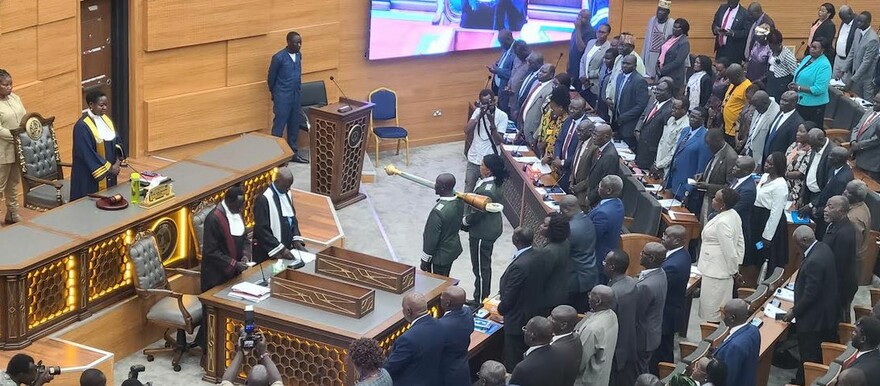The Transitional National Legislative Assembly (TNLA) on Monday passed the Public Finance Management and Accountability Act 2011 (Amendment) Bill 2024 to its third reading stage after scrutiny by the House’s Committee of Finance and Planning.
Presenting the Bill before the House, Changkuoth Bichiok, the chairperson of the Committee for Finance and Planning in parliament, said the purpose of the amendments in the bill is to include the promotion of prudent, transparent, and accountable management of national resources.
“The bill promotes prudent transparent and accountable management of national wealth and resources, the rule of law, constitutional and democratic governance in the Republic of South Sudan during and after the transitional period as stipulated in the agreement and other relevant laws,” he said.
The bill which has nine chapters also demands that when the government borrows money, it has to be negotiated by the finance ministry and the Central Bank.
“A state government and administrative areas may borrow with the approval of the state assembly and Administrative Areas Council in consultation with the national government,” Bichiock added.
It also provided for contracts and loans that are collateralized and guaranteed with oil to be reviewed and the National Petroleum and Gas Commission which is empowered to oversee negotiations with oil companies and awards of concessions and licenses.
Samson Amule Masete, a member representing Lainya County, said the bill is very paramount because it adds weight to the peace agreement which talks about borrowing.
“This Public Finance Management and Accountability Act 2011 (Amendment) Bill 2024 will subsequently become very important, especially if it is going to back up our Article 4.1 of the peace agreement which talks about the borrowing power of this country,” he said.
Amule called on parliament to ensure that more weight is added to the bill to hold ministers accountable, especially those who mismanage public resources.
“Honorable speaker, when the chairperson was reading the report, I saw that the language was okay for a technical person, but somewhere as parliament, we should add weight to this bill, especially by using terminologies that should hold our ministers accountable on how they manage our funds,” he added.
Another lawmaker who only identified himself as Gabriel said the bill will rescue South Sudan from unwanted loans referring to loans that are sometimes borrowed by individuals.
“Our country has been committed to many loans without the approval of parliament, for example, just about a week ago, you might have got information that there is a resolution that South Sudan should pay one billion dollars to Qatar National Bank so the bill can now question individuals involved in this,” he said. “And this gives us a lot of opportunity to see to it that those who are doing this should be called out very strongly and they should adhere to the laws of South Sudan in terms of managing the resources. I want us to take this bill as a very serious matter in terms of correcting our management of the economy.”



